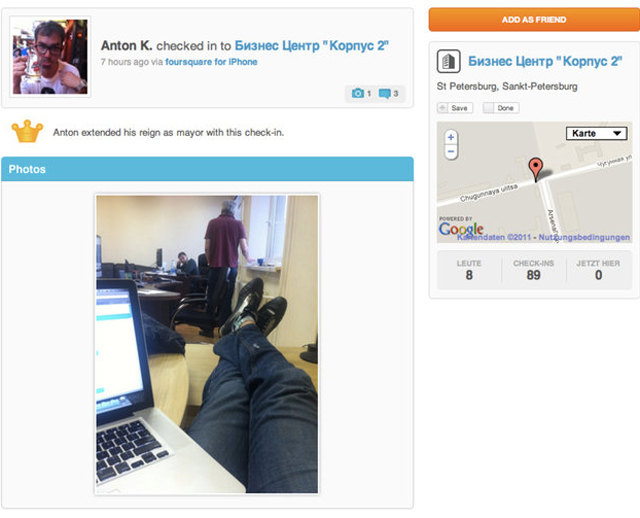Tech: Russian “Koobface” cyber-hackers gave themselves away
- “Koobface” sounds like the cyberbully cousin of Scooby Doo. You might have been a victim of the Koobface gang. This Russian cybergang is responsible for viruses that spread through Facebook and other social network sites. Technically, none of the members are under investigation by law enforcement; it’s hard to prosecture people that you can’t find. Recently, the group has been “checking in” on Foursquare, completing their location with coordinates and pictures. With more and more information being leaked about the group, perhaps citizens, companies and governments will band together to help shut this group down — but even if they finally do, don’t click on anything you don’t trust. source
